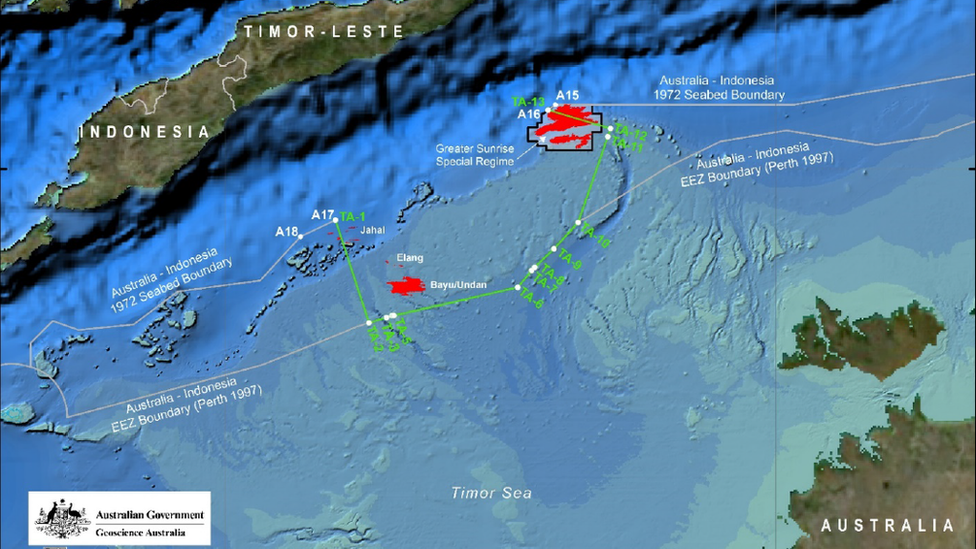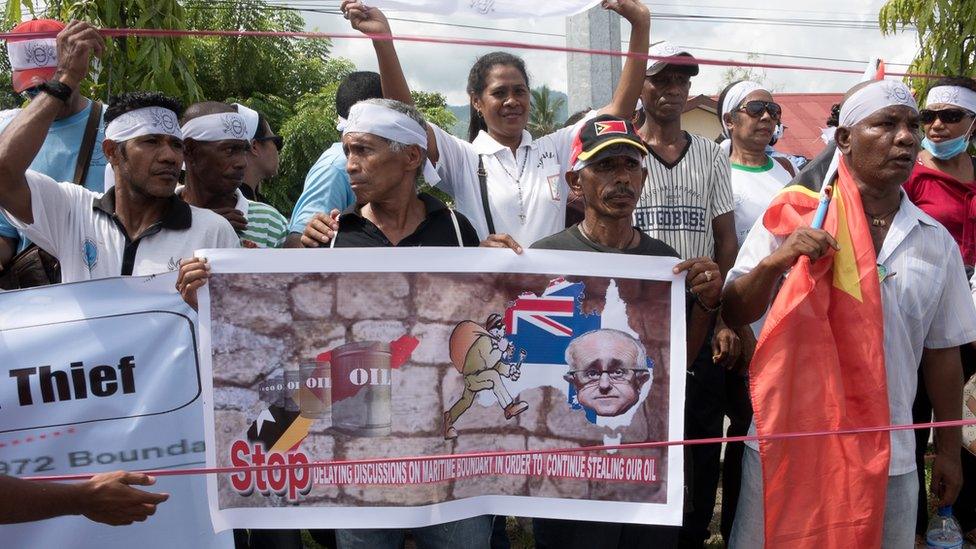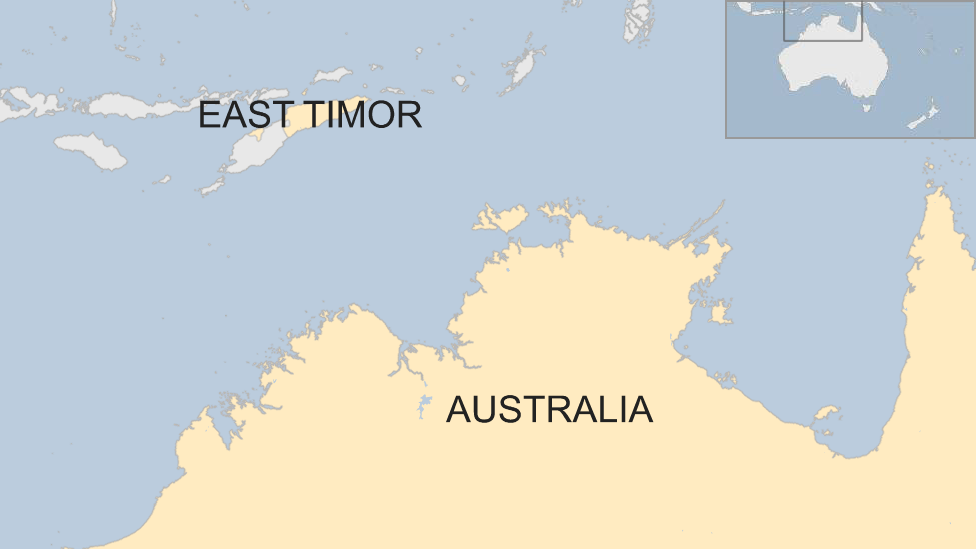Australia and East Timor sign historic maritime border deal
- Published

The new border - marked by the green line - will bring economic benefits to East Timor
Australia and East Timor have signed a historic treaty on a permanent maritime border in the Timor Sea.
The deal ends a decade-long dispute between the neighbours over rights to the sea's rich oil and gas reserves.
East Timor, one of the world's poorest nations, will now gain the majority of any future revenue.
The countries signed the deal at the UN headquarters in New York, after negotiations in the international court of arbitration.
UN Secretary General António Guterres praised the "vision and determination" of both nations in achieving the agreement.
How did conflict arise?
After East Timor, also known as Timor-Leste, gained independence from Indonesia in 2002, no permanent maritime boundary was established between Australia and the new nation.
Instead, the two sides agreed on a temporary boundary, but East Timor later argued that deal had been unfairly forced upon them.
It believed its more powerful neighbour had an unfairly large share of access to oil and gas fields that are estimated to be worth tens of billions of dollars.
In 2016, East Timor contested the arrangements in the Permanent Court of Arbitration in the Hague. Mediation between the nations concluded last week.
What is in the new deal?
The landmark treaty sets out the maritime border at the midway point between the countries, in line with the United Nations Convention on the Law of the Sea (UNCLOS).
Australia had pushed for a border at the edge its continental shelf, which would have put the boundary closer to East Timor.

A protest outside Australia's embassy in East Timor in 2016 over the border dispute
The new deal means East Timor will receive at least 70% of the largest oil field, Greater Sunrise, which is worth an estimated $40bn (£28bn; A$51bn). Previously, revenue was to be split evenly between the countries.
Australia will lose its jurisdiction in oil fields currently shared by both nations.
How did each nation react?
Australian Foreign Minister Julie Bishop said her nation had an "enduring interest" in East Timor's prosperity, acknowledging the treaty as an important step.
"As good friends and close neighbours, we want Timor Leste to achieve its economic potential," she said.
It was "momentous day" for East Timor, said Augusto Cabral Pereira, Deputy Minister of the Prime Minister for the Delimitation of Borders.
What will happen now?
The new deal is a big win for East Timor, which relies heavily on oil and gas for its economy, but had been running out of resources..
The Greater Sunrise oil field is yet to be mined, with a consortium of miners blaming delays on the long-running border dispute.

Canberra had faced accusations it was colluding with oil companies to have gas processed in Australia, according to media reports - an assertion Ms Bishop denied.
Under the agreement, East Timor will receive a greater slice of revenue - 80% - if gas is processed in Australia.
- Published13 June 2016
